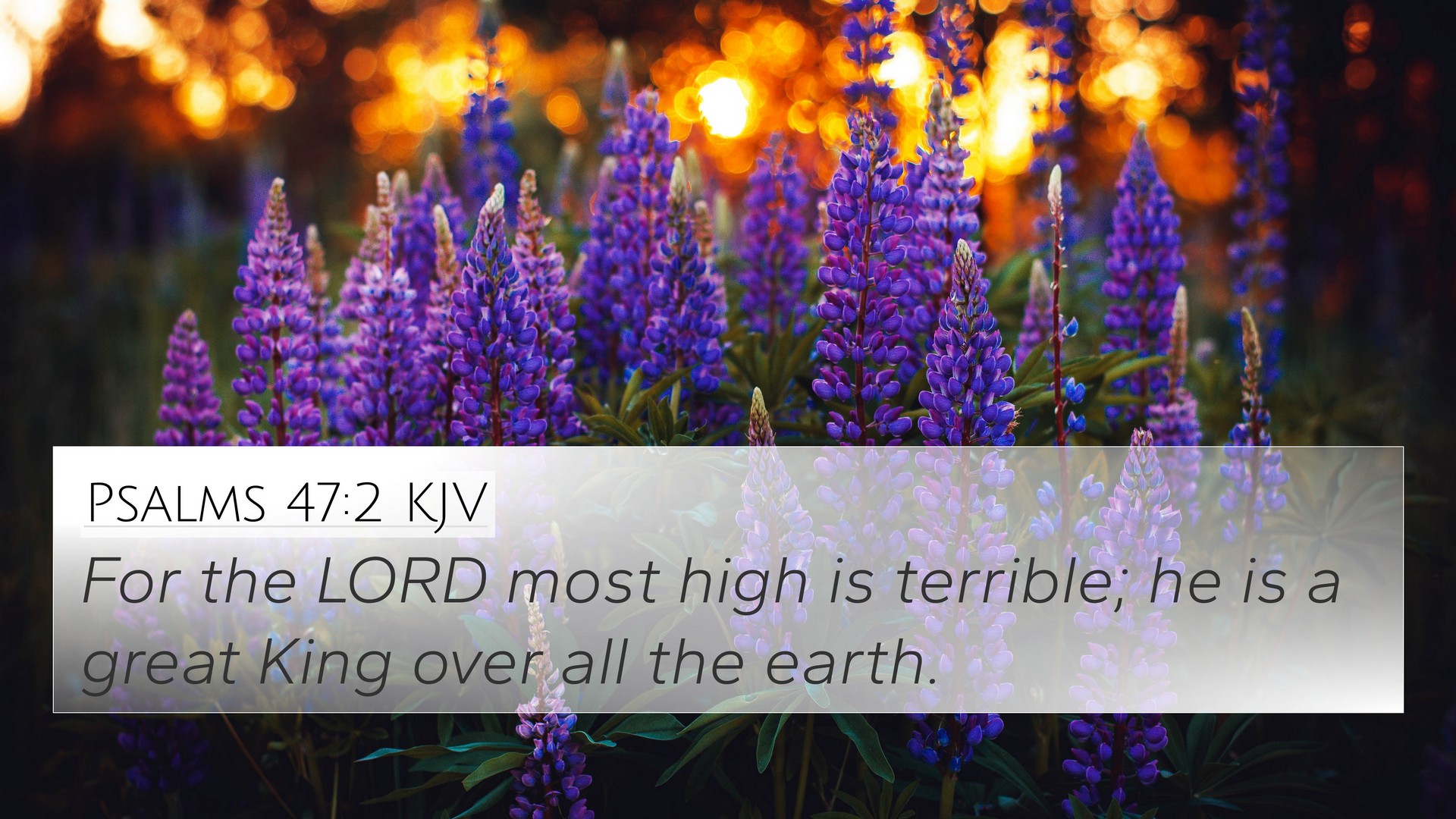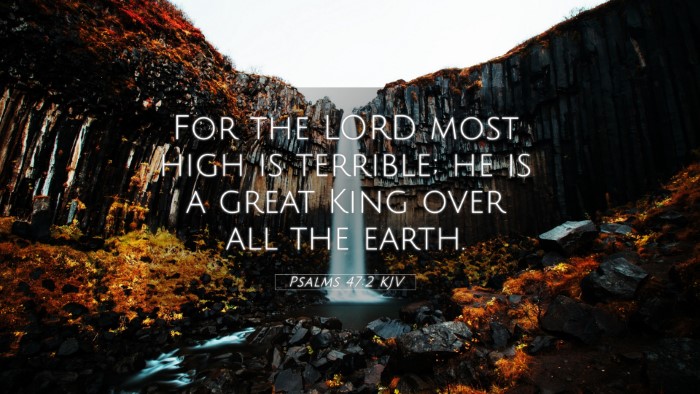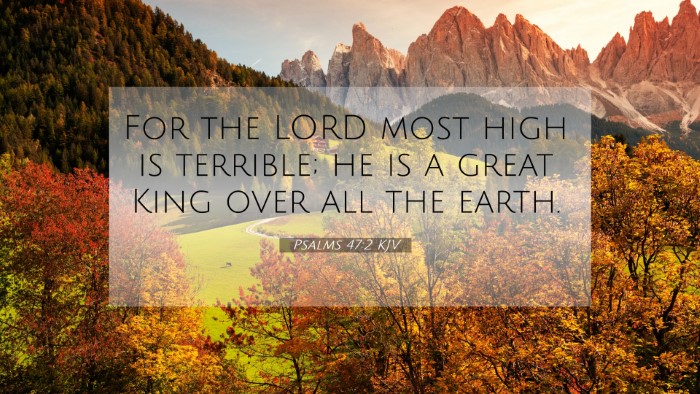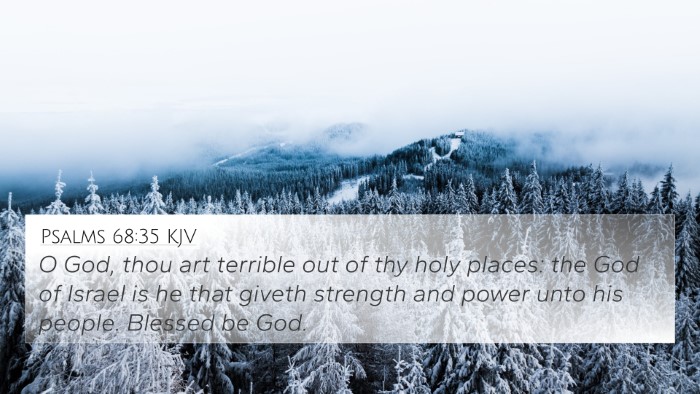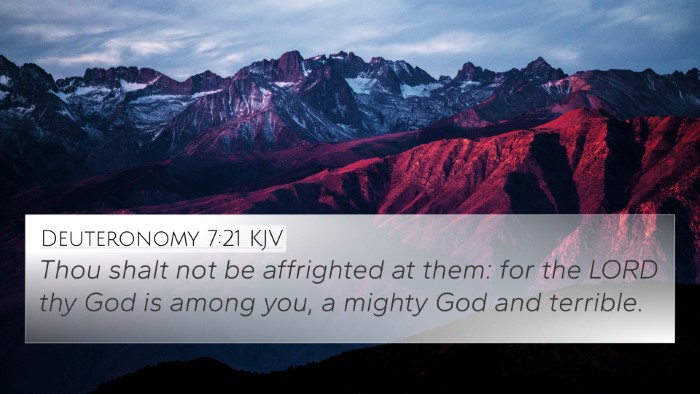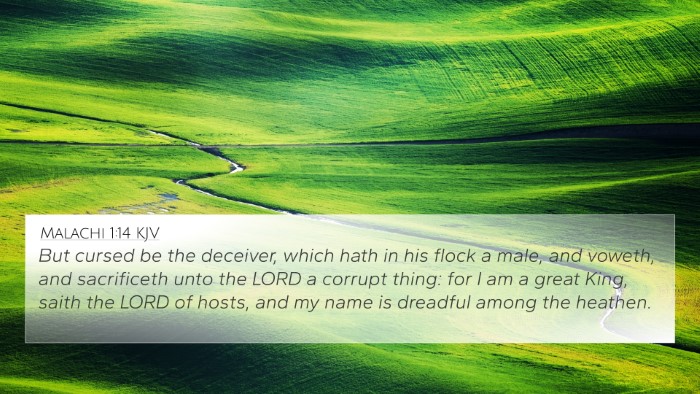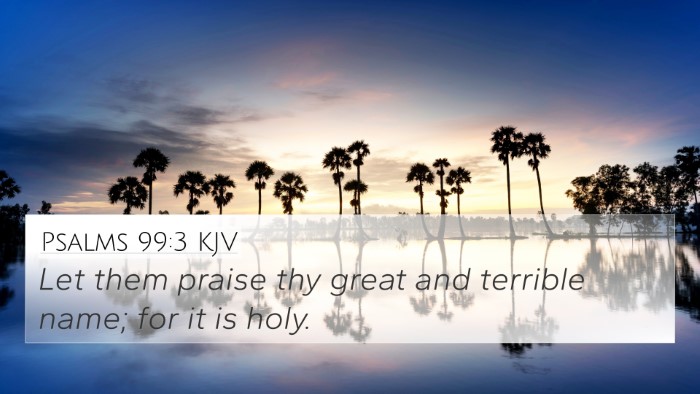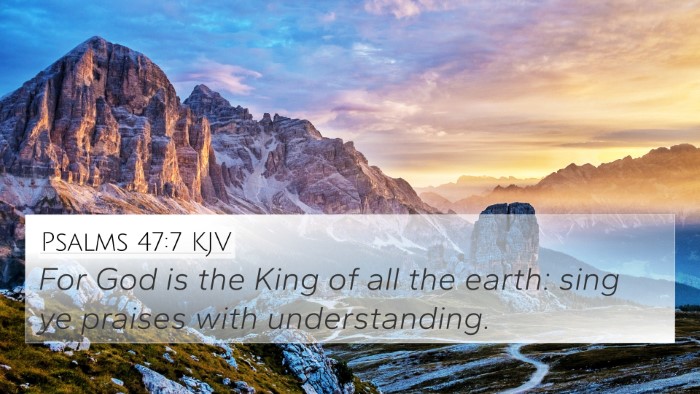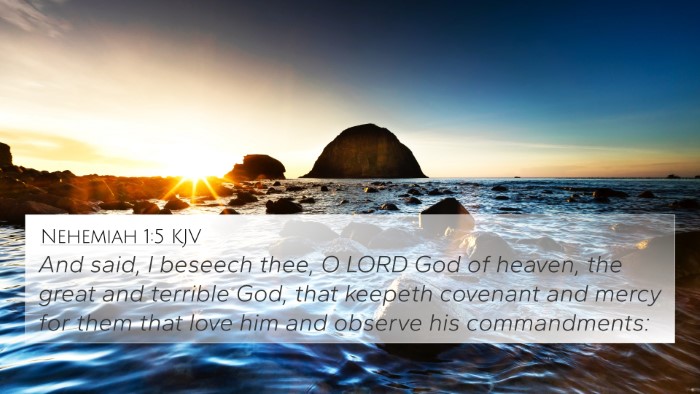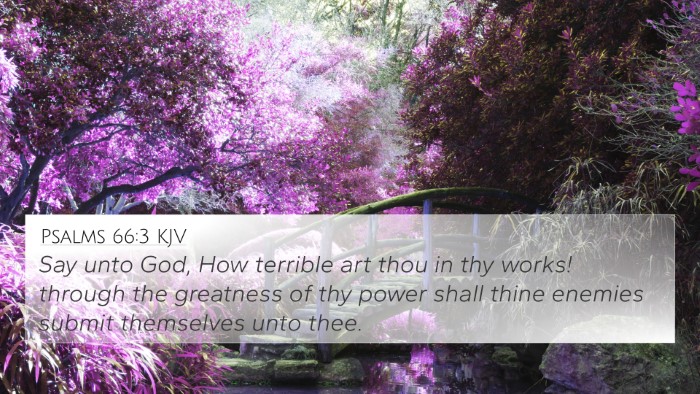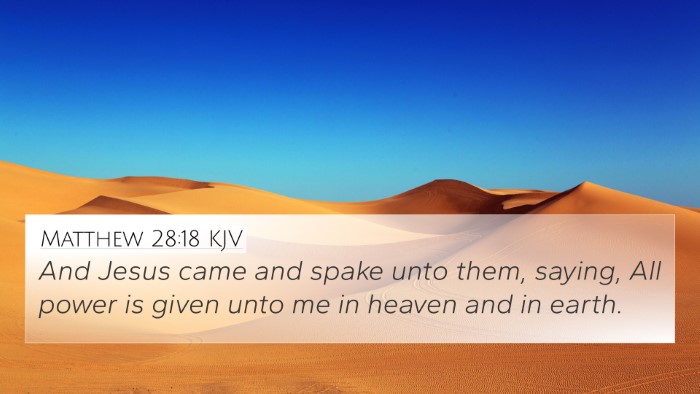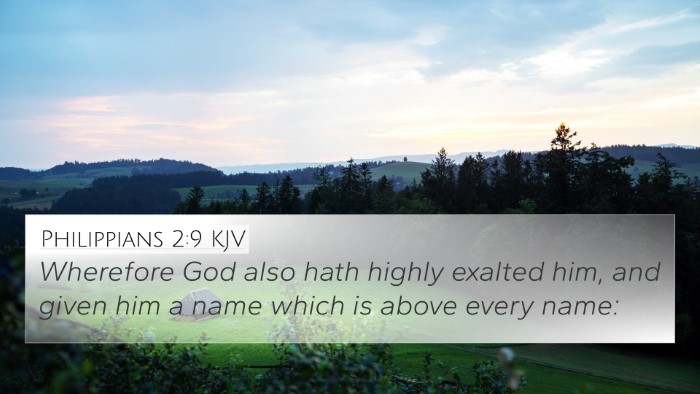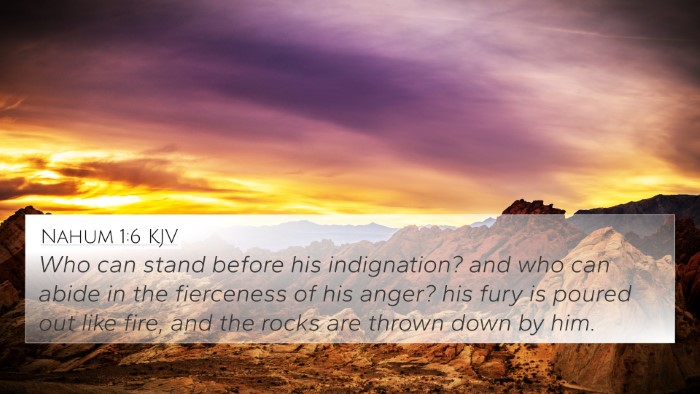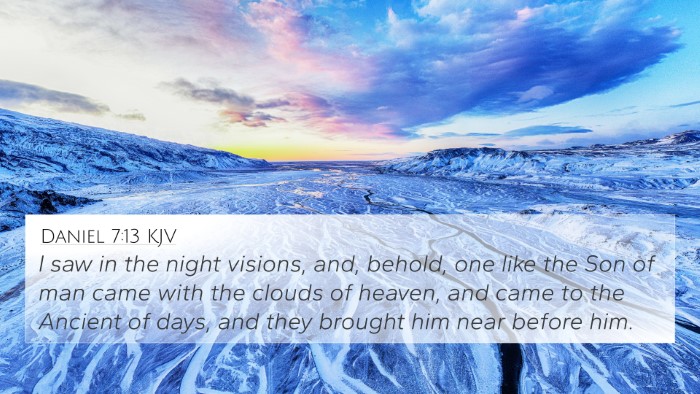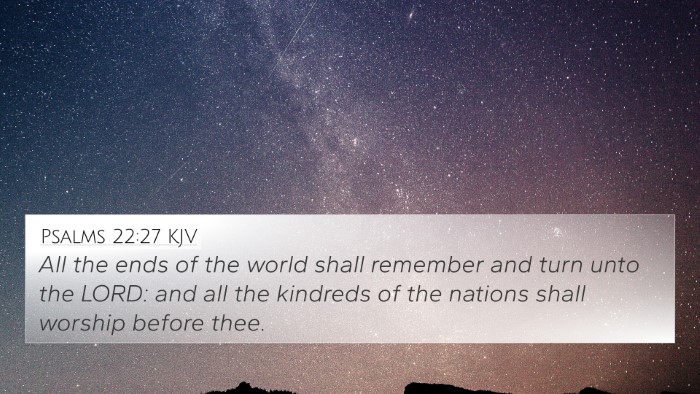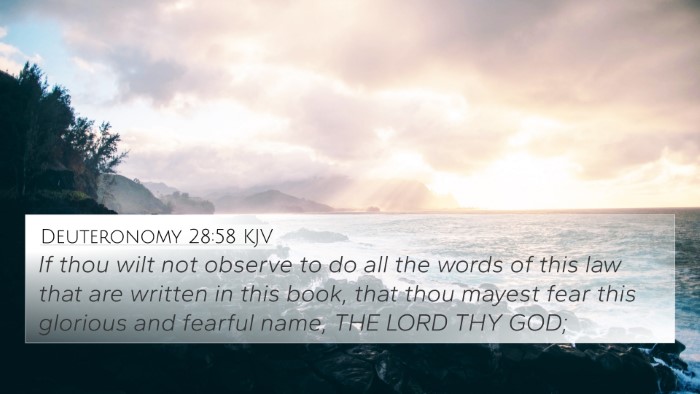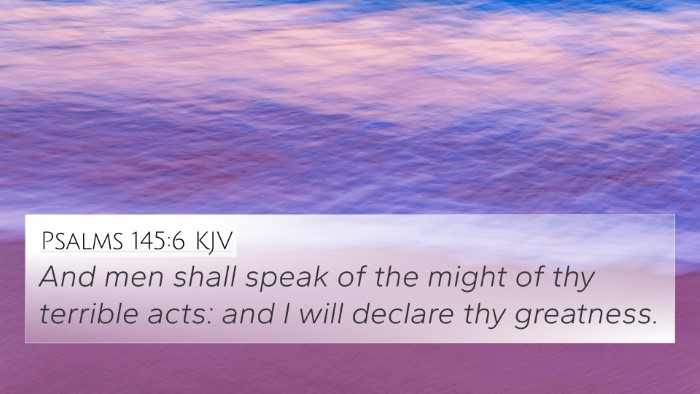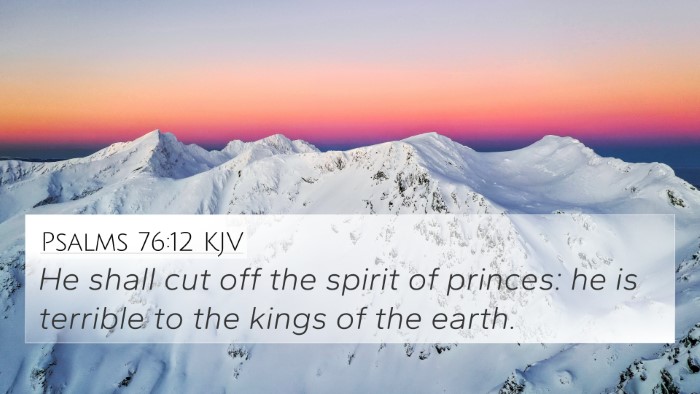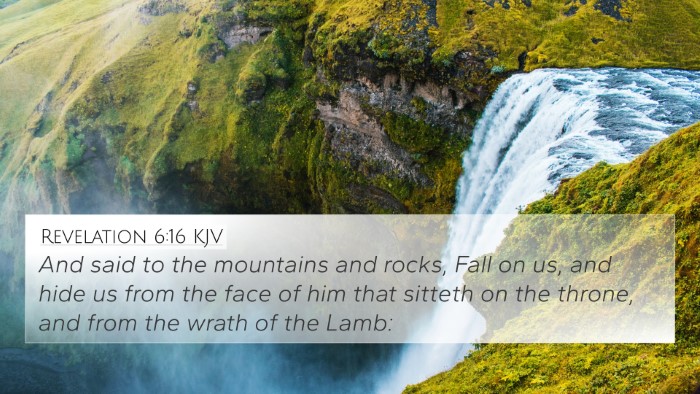Psalms 47:2 - Meaning and Commentary
Psalms 47:2 states, "For the LORD most high is terrible; he is a great King over all the earth." This verse speaks of God's supreme authority and majesty, illustrating His position as the King who reigns over all creation. The character of God, as depicted here, offers a foundational understanding for worship and reverence.
Insights from Public Domain Commentaries
Combining insights from Matthew Henry, Albert Barnes, and Adam Clarke provides a nuanced understanding of this verse's depth and implications.
Matthew Henry's Commentary
Matthew Henry emphasizes the greatness of God, acknowledging Him as "the Most High" who holds dominion over the earth. He points out that this verse serves to inspire awe and reverence among believers. Henry also remarks on God's sovereignty as something that not only demands respect but also assures believers of His control over earthly events. The mention of God being "terrible" underlines His power and ability to execute judgment.
Albert Barnes' Commentary
Albert Barnes explains that "terrible" can also mean awesome. He translates the verse to highlight God’s formidable might and emphasizes His kingship over the nations. Barnes discusses how mankind should respond to God's authority with submission and worship. He notes that God's greatness is noteworthy in both individual lives and national contexts, indicating that His reign brings order and governance even amid chaos.
Adam Clarke's Commentary
Adam Clarke reflects on the title of God as "the great King" over all the earth. Clarke elaborates on the significance of recognizing God's sovereignty, suggesting that this recognition can lead to a greater understanding of humanity's place in relation to the divine. He outlines the universal scope of God's reign, extending to every corner of creation, thus underscoring that His authority is both comprehensive and absolute.
Cross-References
To further explore and understand Psalms 47:2, numerous cross-references highlight similar themes about God's sovereignty and might:
- Psalm 95:3 - "For the LORD is a great God, and a great King above all gods."
- Psalm 103:19 - "The LORD has established His throne in the heavens, and His kingdom rules over all."
- Isaiah 6:1-3 - The vision of God’s majesty: "Holy, holy, holy is the LORD of hosts; the whole earth is full of His glory!"
- 1 Chronicles 29:11 - "Yours, O LORD, is the greatness and the power and the glory and the victory and the majesty..."
- Revelation 19:16 - "On His robe and on His thigh He has a name written, King of kings and Lord of lords."
- Daniel 4:37 - "Now I, Nebuchadnezzar, praise and extol and honor the King of heaven..."
- Philippians 2:9-11 - "...that at the name of Jesus every knee should bow, in heaven and on earth..."
Understanding the Verse in Context
By placing Psalms 47:2 within the broader narrative of the Psalms, we see a consistent theme of praising God for His power and authority. The Psalms often recount the history of Israel, focusing on God's involvement in their deliverance and victories, which reinforces the belief that He is indeed a majestic ruler.
Thematic Connections
The themes presented in Psalm 47:2 resonate throughout the Bible, connecting various scriptures. The reverence and awe inspired by God’s sovereignty are found in multiple contexts:
- God's Authority over Nations: Numerous passages (Jeremiah 10:7, Matthew 28:18) reflect on God's supremacy, leading to considerations of His justice.
- Worship Response: Responses to God’s majesty are echoed throughout the Bible, particularly in worship contexts like in Revelation 4 and 5.
- The Kingship of Christ: New Testament references often emphasize the implications of Christ's kingship (John 18:36, Ephesians 1:20-22).
Tools for Bible Cross-Referencing
For those engaging in deeper study, tools for Bible cross-referencing can greatly enhance understanding. Utilizing a Bible concordance, a Bible cross-reference guide, or dedicated Bible reference resources can help in identifying connections between verses.
Conclusion
Psalms 47:2 encapsulates significant aspects of reverence for God’s greatness and might. Through the combined insights from commentators and the exploration of cross-references, it becomes clear that this verse serves as both a declaration and an invitation to worship the Most High. Engaging with the interconnectedness of scripture enriches one's understanding of God's nature throughout the Biblical narrative.
